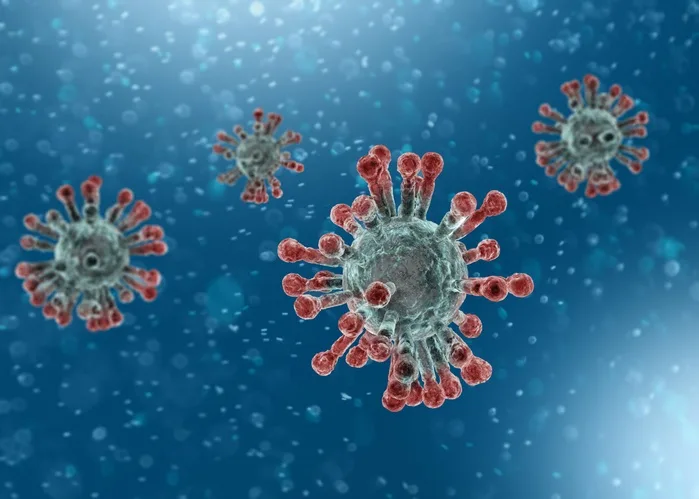
UPDATED: Common COVID-19 myths, debunked with hard facts
The Internet can help spread misinformation as fast as any pandemic.
People are understandably thirsty for information on the ongoing COVID-19 outbreak, and how to protect themselves, but not everything out there is accurate. Here are a few of the more common myths about the virus, debunked.
FACT: COLD WEATHER AND SNOW DO NOT KILL COVID-19
The World Health Organization is very clear that there is no evidence cold temperatures kill the virus. The contagion is passed from human to human, and the average person's internal body temperature stays constant at around 37°C, no matter how cold or warm it is outside.
FACT: SUN AND HOT TEMPERATURES WON'T PROTECT YOU FROM COVID-19
On the flipside, the WHO says the virus can also be transmitted in hot and humid temperatures.
This specific myth refers to temperatures above 25°C, according to the WHO's myths catalogue. Needless to say, as with cold weather, hotter temperatures aren't a defence against the virus, and the WHO recommends being diligent about hand washing as the best line of defence.
FACT: THERE IS NO COVID-19 VACCINE
Vaccines take time to develop and test before they are safe and effective enough for general use.
That doesn't mean scientists aren't working on it. The Guardian reports some 35 companies and universities are racing to develop one, with some already at the animal testing stage, but the first human trials will come no earlier than April.
One myth is vaccines against pneumonia are effective, but the WHO specifically says that isn't true.
FACT: HYDROXYCHLOROQUINE IS BEING TESTED AS A COVID-19 TREATMENT, BUT AS-YET UNPROVEN
This particular drug has been in the news a lot in recent days as a potential treatment for the disease, and is in fact undergoing limited testing on humans (in Canada, it is being tested at a B.C. seniors' home where several residents are infected with COVID-19).
However, it is much too soon to say for certain if the drug is effective, and Quebec-based health institute INESSS is urging caution in its use.
EXPLAINER: HOW THE CORONAVIRUS (SARS-COV-2) INFECTS HUMAN CELLS
FACT: CATCHING COVID-19 DOES NOT MEAN YOU WILL HAVE IT FOR LIFE
While some illnesses do recur with varying degrees of virulence and frequency throughout the sufferer's life, the WHO says that's not the case with COVID-19. Most sufferers will recover and eliminate the virus from their bodies.
FACT: ANTIBIOTICS CANNOT BE USED AGAINST COVID-19
In fact, antibiotics aren't effective against ANY viruses. They are used to treat bacterial infections.
The WHO says antibiotics may be used for those who have been hospitalized due to COVID-19 infection, but only as a means to treat bacterial co-infections, not the virus itself.
FACT: EATING GARLIC, BINGING ON VITAMIN C, AND TAKING OTHER SUBSTANCES AS 'CURES' IS INEFFECTIVE
Garlic is generally good for you, and the WHO says it does have some antimicrobial effects, but against COVID-19, it offers no defence.
Likewise, taking a hefty dose of vitamin C, while certainly recommended for anybody, has not been proven effective against COVID-19.
In fact, none of the food or other substances and remedies peddled online -- like drinking water every 15 minutes, swallowing or gargling with bleach, acetic acid, essential oils, and ethanol, to name a few -- are known to be effective in preventing or treating COVID-19, and some are even dangerous.
The best defence against the virus remains washing your hands thoroughly.
YOU'RE DOING IT WRONG: HOW TO REALLY WASH YOUR HANDS, BELOW
FACT: ALCOHOL DOES NOT PROTECT YOU FROM THE VIRUS
The WHO says alcohol can be used as a disinfectant, but only under particular circumstances, and spraying alcohol onto your body won't offer much in the way of protection, and won't have an effect if the virus is already in your body.
Rather, the WHO warns it can have a bad effect on your eyes of mucus membrances (the same is true of chlorine, which they strongly recommend against). Drinking alcohol is also ineffective: in Iran, authorities are urging citizens not to ingest industrial alcohol after hundreds of people died or were sickened from it in an effort to keep the virus at bay.
FACT: HOT AIR HAND DRYERS DO NOT KILL THE VIRUS
Not only do the kind of electric hot air hand dryers you might find in a restroom not kill the virus, they may actually cause it to spread further! Studies over the past few years suggest the dryers may disperse bacteria, spores and other pathogens in the surrounding area.
The WHO recommends using paper towels, or else a warm air dryer instead.
FACT: TAKING A HOT BATH DOES NOT PROTECT AGAINST THE VIRUS
A hot bath wouldn't do anything to keep the virus at bay. For the water to be hot enough to have an effect, your bathwater would have to be dangerously hot. You're better off washing your hands thoroughly.
FACT: THE CORONAVIRUS CANNOT BE TRANSMITTED THROUGH MOSQUITO BITES
Certainly some viruses, like malaria and West Nile, can be transmitted by mosquitos, but the WHO says there's no evidence COVID-19 is transmitted that way.
Canadian Blood Services also says there is no evidence the virus can be transmitted through blood and blood products, though it still has some precautionary measures in place for would-be donors.
FACT: U.V. DISINFECTION LAMPS ARE NOT RECOMMENDED
While ultraviolet ray-emitting lamps are being used in China to disinfect buses, and are used in other ways as well, the WHO warns against using them on your hands or other exposed skin, as it can cause severe skin irritation.
FACT: ORDERING PRODUCTS FROM CHINA WILL NOT SPREAD THE VIRUS
Like most viruses, COVID-19 is not known to survive long on surfaces without a host, and particularly not the days or weeks it would take for a parcel ordered from across the Pacific to arrive in your home, according to Johns Hopkins University.










